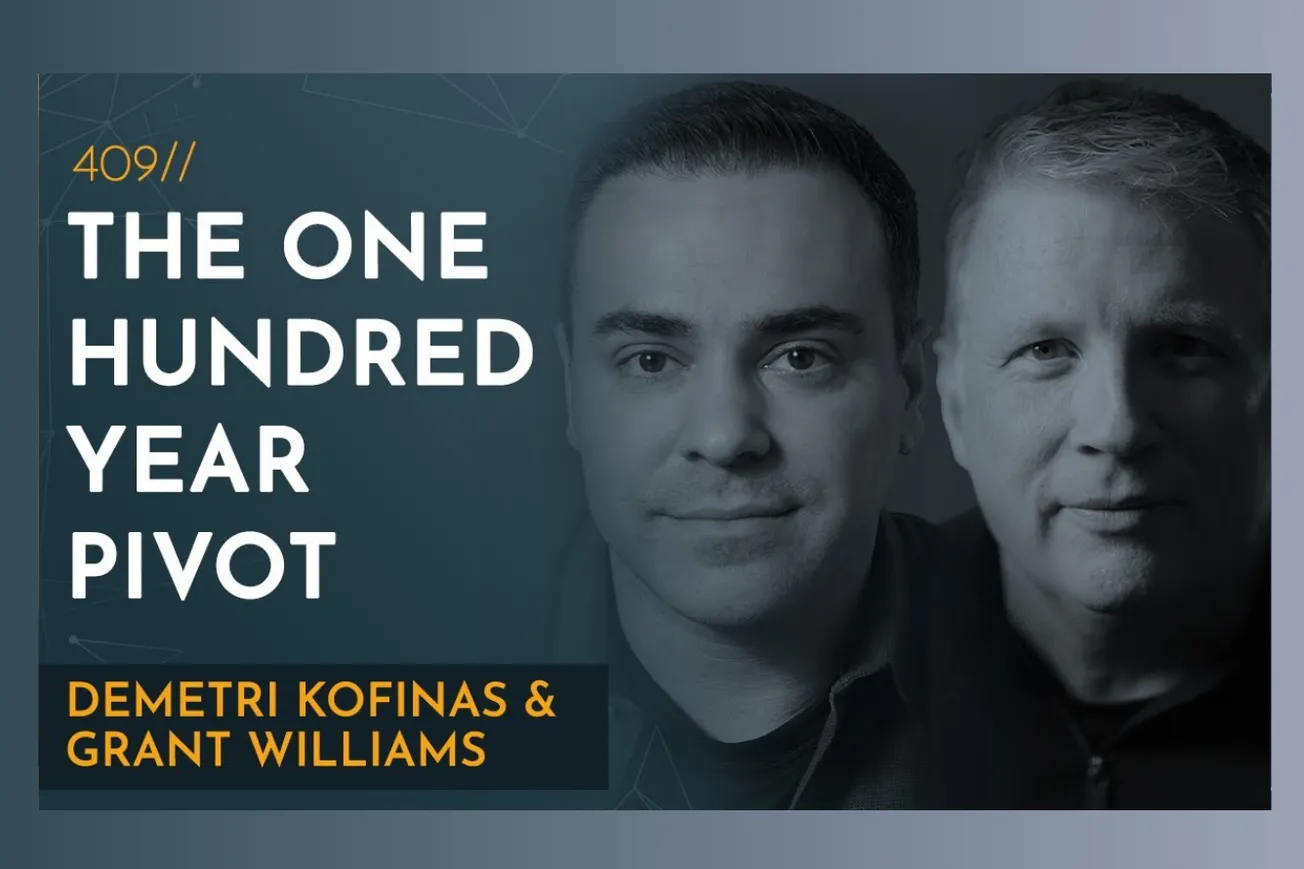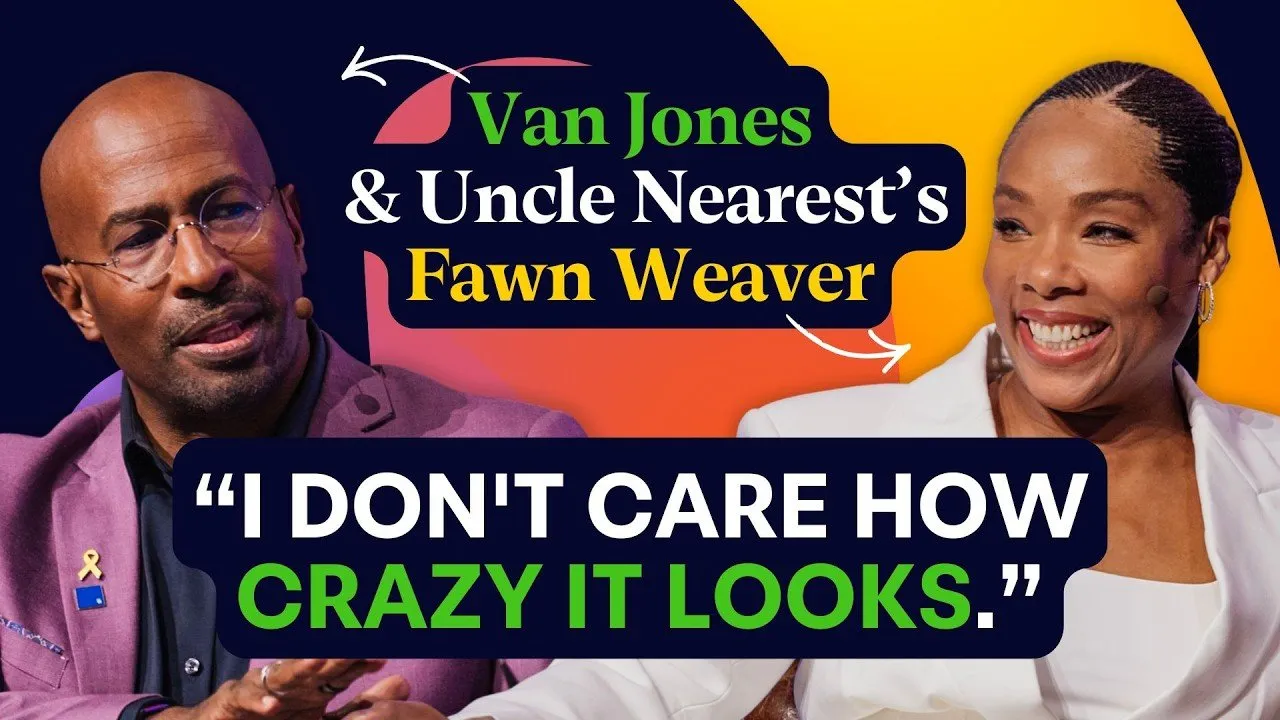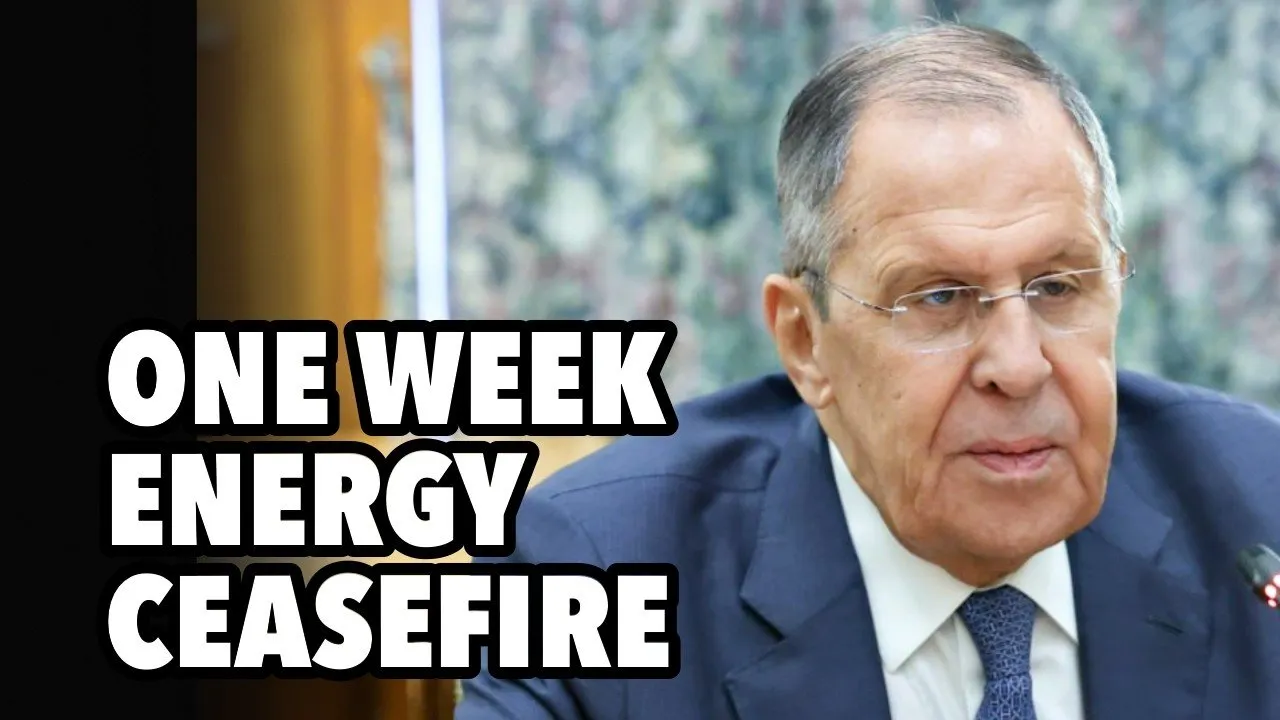Table of Contents
Demetri Kofinas and Grant Williams launch a groundbreaking podcast series exploring the once-in-a-century economic and political reordering reshaping our world.
Two of finance's most insightful podcasters unite to navigate the unprecedented changes transforming markets, politics, and society through unstructured conversations with leading thinkers.
Key Takeaways
- Kofinas and Williams recognize we're living through a once-in-a-century economic and geopolitical reordering requiring new analytical frameworks
- Their collaborative approach emphasizes authentic, unstructured conversations over heavily prepared interviews to capture genuine insights
- The series will feature historians like Neil Howe and Russell Napier who've developed accurate frameworks for understanding systemic change
- Both hosts stress the importance of questioning existing mental models rather than seeking right answers to wrong questions
- The meaning crisis affecting society extends into financial markets, creating opportunities for fundamental reexamination of assumptions
- Generational factors, from baby boomer retirements to young parents' concerns, drive deeper questions about legacy and adaptation
- Current events like tariffs and AI advancement represent symptoms of broader structural shifts rather than isolated policy changes
Timeline Overview
- 00:00–12:30 — Series Introduction: Williams and Kofinas explain the organic genesis of their collaboration and the "once-in-a-century reordering" thesis driving their partnership
- 12:30–28:45 — The Meaning Crisis: Discussion of financial nihilism, spiritual awakening, and Roger's essay on forgiveness amid societal trial and collective sacrifice
- 28:45–45:20 — Historical Frameworks and The Fourth Turning: Nazi Germany parallels, Neil Howe's generational cycles, and the importance of historical perspective for understanding transformation
- 45:20–62:15 — Russell Napier's National Capitalism: Deep dive into Napier's methodology, accountability through diary publishing, and the Library of Mistakes approach to analytical rigor
- 62:15–78:30 — Framework Thinking and Map-Making: Child development metaphors, Tim O'Reilly's influence, and the crucial distinction between maps and territory during periods of change
- 78:30–92:45 — Generational Stakes and Fatherhood: Personal motivations driven by grandchildren and newborn concerns, plus the wealth effect and white-collar recession possibilities
- 92:45–END — Series Logistics and Audience Participation: Publishing plans, subscriber benefits, and invitation for listener engagement in the collaborative exploration
Origins of a Revolutionary Podcast Collaboration
The 100-Year Pivot emerged organically from a shared recognition that traditional analytical frameworks no longer adequately explain our rapidly changing world. Kofinas and Williams, both established podcast hosts in the financial sphere, found their February conversation resonated powerfully with audiences who felt something fundamental had shifted but couldn't articulate what.
- The collaboration represents their first joint venture after years of discussing potential projects, born from authentic recognition of unprecedented change rather than forced creative planning
- Williams noted how listeners repeatedly told him "I didn't even know I was feeling this way until Demetri articulated it so perfectly," indicating widespread but unacknowledged societal anxiety
- Their approach deliberately abandons the structured interview format both hosts typically employ, embracing uncertainty and exploratory conversation as methodology
- The series name captures both secular trends (the "hundred-year" cycle) and actionable insights (the "pivot" toward adaptation and positioning)
The podcast addresses what both hosts see as a fundamental disconnect between surface-level market commentary and deeper structural forces reshaping civilization itself.
The Meaning Crisis and Financial Nihilism
Modern society faces what academics term a "meaning crisis"—a breakdown of organizing principles that has filtered into financial markets and political discourse. This crisis manifests as what Kofinas calls "financial nihilism," where traditional relationships between risk, reward, and underlying economic value have become unmoored.
- Williams observes that dinner conversations increasingly extend to three-and-a-half hours with "two bottles of wine" as people grapple with profound questions about direction and purpose
- The breakdown affects not just individual psychology but systemic market behavior, as participants lose confidence in fundamental relationships between effort and reward
- Religious and spiritual themes have emerged prominently in private correspondence following their initial conversation, suggesting people seek moral anchoring points amid chaos
- The crisis extends beyond financial markets into questions of national identity, international relationships, and generational continuity
Williams, though not religious himself, acknowledges the spiritual component driving contemporary unrest. People grasp for "some kind of moral center, some kind of compass that gives principles and ethics and morals and guidance."
Historical Frameworks and the Fourth Turning
Both hosts emphasize the value of historical perspective in understanding current events, particularly through frameworks like Strauss and Howe's generational theory. The Fourth Turning concept—describing 80-to-100-year cycles of crisis and renewal—provides structure for interpreting seemingly chaotic contemporary developments.
- Neil Howe, co-author of The Fourth Turning, will appear as their first guest to explore how generational cycles explain current political and economic upheaval
- Williams reflects on how historical study of Nazi Germany's rise helped him understand how democratic societies can rapidly transform under pressure
- The 1930s parallel extends beyond simple trade war comparisons to include "capital wars and the breakdown of the global order" that characterized that earlier crisis period
- Historical frameworks offer both comfort and warning—patterns repeat, but outcomes vary dramatically based on collective choices and leadership quality
- Russell Napier's work exemplifies the value of historical perspective, having documented his real-time analysis during the Asian Financial Crisis to maintain analytical accountability
- The hosts stress that periods like the present "are going to be written about for hundreds of years to come" as fundamental turning points in human organization
Understanding historical precedent helps distinguish between surface volatility and genuine structural transformation, though Williams notes the accelerated pace of contemporary change requires faster framework adaptation than previous generations experienced.
Russell Napier's National Capitalism Framework
Russell Napier represents the type of systematic thinker the series seeks to feature—someone who has developed new analytical frameworks while maintaining rigorous intellectual accountability. His concept of "national capitalism" offers tools for understanding the post-globalization economic order taking shape.
- Napier's methodology includes publishing historical diary entries from crisis periods, allowing readers to see his real-time thinking rather than post-hoc rationalization
- His approach combines bottom-up analysis with willingness to abandon outdated models when evidence contradicts prevailing assumptions
- The "Library of Mistakes" he maintains demonstrates commitment to learning from analytical failures rather than defending past positions
- His warning against "getting all the right answers to all the wrong questions" captures the danger of applying obsolete frameworks to novel situations
- National capitalism describes the shift from globally integrated markets toward state-directed allocation of resources and strategic economic competition
- Napier's historical background enables him to recognize parallels between current developments and previous transitions between economic systems
Kofinas particularly values Napier's combination of humility and analytical rigor, noting that the highest-signal analysts maintain "a baseline level of humility" about the limitations of their understanding.
Framework Thinking and Map-Making
The series emphasizes the crucial distinction between analytical frameworks (maps) and underlying reality (territory), drawing inspiration from both child development psychology and navigation metaphors. As circumstances change rapidly, mental models must evolve to remain useful guides.
- Kofinas draws parallels between infant cognitive development and adult framework construction, noting how humans impose structure on chaotic information streams to enable navigation
- The danger lies in becoming "wedded to those maps" rather than recognizing them as provisional tools that may require updating or replacement
- Successful navigation of transition periods requires willingness to "break the old and build something new" rather than defending familiar but obsolete models
- The map-making metaphor extends to their collaborative goal of "drawing for our listeners a map to the future" through collective exploration rather than predetermined conclusions
- Tim O'Reilly's influence on Kofinas emphasizes that effective maps must account for the forces shaping present conditions rather than simply extrapolating past trends
- Framework thinking becomes particularly crucial during periods when "baseline assumptions have to change" due to fundamental shifts in underlying conditions
The hosts acknowledge that their own understanding remains provisional and subject to revision based on evidence and insight from their featured guests.
Generational Perspectives and Fatherhood
Personal stakes in the transition drive both hosts' urgency about understanding long-term implications. Williams, as a grandfather, and Kofinas, as a new father, bring generational perspective to questions about legacy and adaptation that extend beyond financial markets.
- Williams focuses primarily on preparing his grandchildren (ages four and six) for a world that will differ dramatically from the stable globalization period he experienced
- Kofinas reflects on watching his seven-month-old son's cognitive development as metaphor for how humans structure reality through framework development
- The parental perspective shifts focus from personal financial positioning toward understanding "what's the world they're going to inherit"
- Both recognize that younger generations will face challenges they themselves will largely avoid due to age and established circumstances
- The generational component explains why framework flexibility becomes crucial—rigid thinking patterns developed during stable periods may prove maladaptive during transition
- Williams notes that most people outside financial markets experience recent volatility very differently, highlighting the need for multiple analytical perspectives
The fatherhood experience deepens Kofinas's appreciation for how humans impose order on chaotic experience while remaining open to fundamental reexamination of assumed structures.
Technology, Labor, and Economic Disruption
The series will explore how artificial intelligence and technological automation intersect with economic cycles to potentially accelerate social and political change. These technological forces may trigger the kind of collective sacrifice that previous generations experienced through depression and war.
- AI advancement could drive the first "white-collar recession" as firms become willing to experiment with automation during economic downturns when cost-consciousness peaks
- The wealth effect from declining asset prices might reduce consumer spending enough to trigger recession, creating conditions for accelerated AI adoption
- White-collar job displacement could reshape Democratic Party politics around Universal Basic Income rather than identity-focused messaging
- Baby boomer retirements combined with technological disruption may prevent traditional mean reversion in financial markets
- Tariff policies and international rebalancing efforts add complexity to technological displacement effects
- The combination of demographic, technological, and political pressures creates unprecedented conditions requiring new analytical approaches
Kofinas suggests that the convergence of these factors might finally give politicians representing affected workers a coherent economic agenda around technological displacement rather than cultural grievances.
Common Questions
Q: What makes The 100-Year Pivot different from other financial podcasts?
A: The series prioritizes unstructured exploration of fundamental changes over market analysis, bringing together two experienced hosts to navigate uncertainty collaboratively.
Q: Why focus on historical frameworks like The Fourth Turning?
A: Historical patterns help distinguish between temporary volatility and genuine structural transformation, providing perspective during periods of apparent chaos.
Q: How will the series address investment implications?
A: Rather than specific recommendations, the hosts seek to develop better frameworks for understanding forces driving long-term change.
Q: Who are the target guests for the series?
A: Historians, economists, and thinkers who have developed accurate frameworks for understanding systemic change, starting with Neil Howe and Russell Napier.
Q: How can audiences participate in the series?
A: Listeners can suggest guests and topics through email, contributing to the collaborative exploration of contemporary transformation.
The series launches with premium subscriber early access before public release, reflecting both hosts' commitment to supporting their existing communities while sharing insights broadly. Their collaborative approach represents a new model for exploring complex topics requiring multiple perspectives and genuine intellectual curiosity rather than predetermined conclusions.
Conclusion
The 100-Year Pivot emerges from a recognition that we stand at an inflection point requiring fundamentally new approaches to understanding economic and social change. Kofinas and Williams acknowledge that traditional analytical frameworks—developed during decades of globalization and relative stability—may no longer adequately explain the forces reshaping our world.
Their collaborative exploration emphasizes intellectual humility over certainty, historical perspective over contemporary noise, and framework flexibility over rigid adherence to outdated models. By bringing together historians, economists, and original thinkers who have demonstrated accuracy in previous transitions, they seek to map uncharted territory rather than defend familiar but obsolete perspectives. The series recognizes that the stakes extend far beyond financial markets to encompass generational legacy, social cohesion, and the basic organizing principles that enable societies to function effectively during periods of fundamental transformation.
Practical Implications
- Develop Framework Flexibility: Regularly question your baseline assumptions about how markets, politics, and society function rather than seeking confirmation of existing beliefs
- Prioritize Historical Perspective: Study previous transition periods to distinguish between temporary volatility and genuine structural change requiring adaptive responses
- Seek High-Signal Sources: Focus on analysts and thinkers who demonstrate intellectual accountability, maintain humility about limitations, and update frameworks based on evidence
- Plan for Non-Linear Change: Prepare for scenarios where traditional mean reversion doesn't occur and previous relationship patterns break down permanently
- Consider Generational Timeframes: Make decisions accounting for how current changes might affect children and grandchildren over decades rather than just immediate financial impact
- Embrace Uncertainty as Information: Treat widespread confusion and breakdown of consensus as signals of fundamental change rather than temporary market noise
- Balance Preparation with Participation: Engage actively in understanding transformation while avoiding paralysis from attempting to predict unpredictable outcomes





